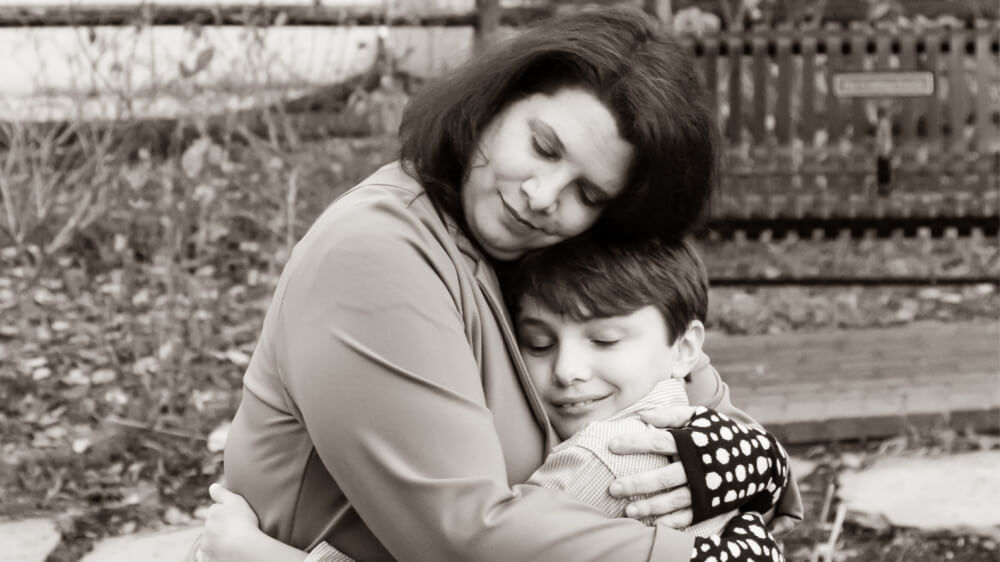My Son and I Have the Same Disability, but That Doesn’t Mean We Need the Same Accommodations
I am a mother with invisible disabilities. I have ADHD, dyslexia, Visual Motor Processing Disorder, and an autoimmune disorder. For years, I struggled to find my place because I never quite fit in with the neurotypical world. I never believed that I had to announce that I have disabilities, but there were days that were long and difficult.
In my early 30s I realized that I could be miserable and hide who I am, or I could be proud of being a woman with disabilities. I chose to be proud and then found my “place” within the disability community.
When I made this decision, I also made a promise to myself. I promised to be transparent and open about my disabilities with my children.
A few years later I became pregnant and due to my age, I had prenatal genetic testing. I sat with the geneticist and talked about how ADHD and learning disabilities were multi-generational in my family. I knew there was a chance that my son would be born with disabilities too, but it would take a few years for him to be diagnosed. My son was seven he received his first diagnosis, ADHD.
That’s when I made a huge mistake. I assumed that my son would need the same accommodations as me. Same diagnosis, same accommodations, right? What a horrible assumption. Sure, we have a similar presentation of ADHD. We are both inattentive and hyperactive, but our hyperactivity is not alike.
I’m not exaggerating when I share this, but I can barely sit still, ever. At a conference (when we could attend them in person) I always sat in the back near the door. I need to be able to leave the room, walk around, and expel my excessive energy.
My child, he fidgets. He sits at his desk and fidgets. A fidget toy, something he can grip, really helps him with his excessive energy.
ADHD impacts executive functioning skills and since I’m so impulsive I tend to be a flexible thinker. And because of my two learning disabilities, I found ways to navigate school by building my working memory skills.
My child is not a flexible thinker and any change with his daily routine leads to a day of anxiety and frustration. He thrives with routine and structure, while I’m a “flying by the seat of my pants” person.
I had no idea how to implement a routine or provide structure to our days. I started working with a family therapist to get help. Through some trial and error, we found a routine that worked for our family, but we also were learning how to navigate the days when our routine was thrown off.
Then schools closed in March 2020. Our routine was gone, and we were starting over like so many families and children. After three weeks of helping my son with virtual learning, I realized that my son is also learning disabled. My husband and I tried to get the school to evaluate him for special education, but our district put all evaluations on hold.
Working with my son’s pediatrician and a clinical psychologist, we were able to get answers. Just like me, my son was diagnosed with Visual Motor Processing Disorder.
With this new diagnosis, I found myself working through a lot of emotions. I was frustrated that he went undiagnosed was denied special education evaluations for years. I know that 4th grade isn’t middle school or high school but denying children special education supports and services is wrong. I had that happen to me and I never wanted that for him. I wanted his education to be better than mine.
Just as I was getting ready to fall back into an old habit of “knowing what’s best because we have the same diagnosis” I decided to get help from the clinical psychologist who performed the evaluations.
The psychologist gave me the best advice. She said, “Stop assuming that you and your son are going to need the same accommodations. The diagnoses are the same, but that’s it.”
Sitting in that office, I realized that I was getting ready to do something that’s really hard for parents. I had to step back and listen to my child’s needs. My son needs to discover what accommodations and strategies work for him, not what works for me.
I’ve spent years learning about myself and my disabilities. I know what triggers me, how to self-advocate, and accommodate. I know what works for me and what doesn’t because I have the life experience.
My child is young and he’s just now learning about his disabilities. He’s getting help that I didn’t know was possible and using technology that didn’t exist when I was his age. He’s learning so much through cognitive behavioral therapy and occupational therapy. But he’s at the beginning of his journey and he needs the chance to learn and grow.
There are days where I want to take over and tell my son what accommodations and strategies he needs, but I can’t. I can work with him, talk with him, model behavior, implement strategies suggested by his occupational therapist, but I can’t take over.
I can only hope that the promise I made eleven years ago, to be open and transparent, is being kept.
About Rooted In Rights
Rooted in Rights exists to amplify the perspectives of the disability community. Blog posts and storyteller videos that we publish and content we re-share on social media do not necessarily reflect the opinions or values of Rooted in Rights nor indicate an endorsement of a program or service by Rooted in Rights. We respect and aim to reflect the diversity of opinions and experiences of the disability community. Rooted in Rights seeks to highlight discussions, not direct them. Learn more about Rooted In Rights



